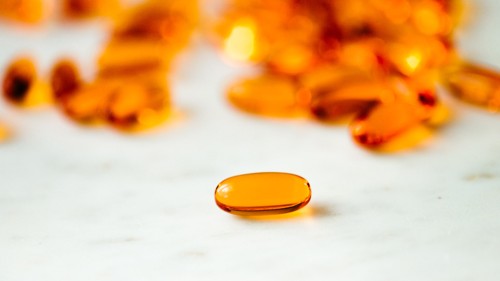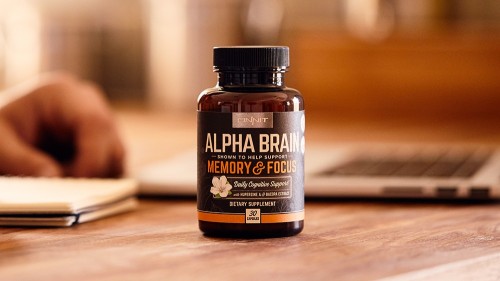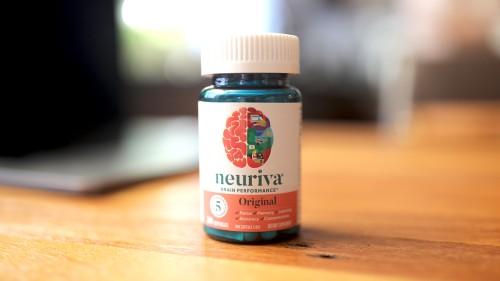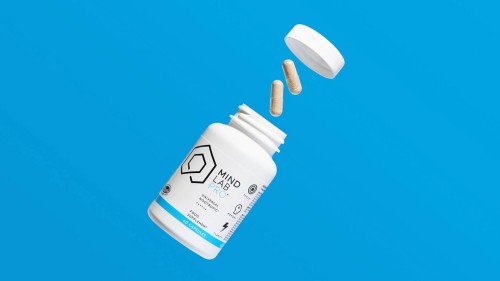The 10 Top Foods for Brain Health, According to a Dietitian
Last Updated on August 2, 2021
Medically Reviewed by Anthony Dugarte, MD
One of the best things you can do for your brain is to feed it well. Eating a diet that includes foods rich in healthy fats, fiber, antioxidants, vitamins, and minerals can help slow cognitive decline and support a healthy brain.

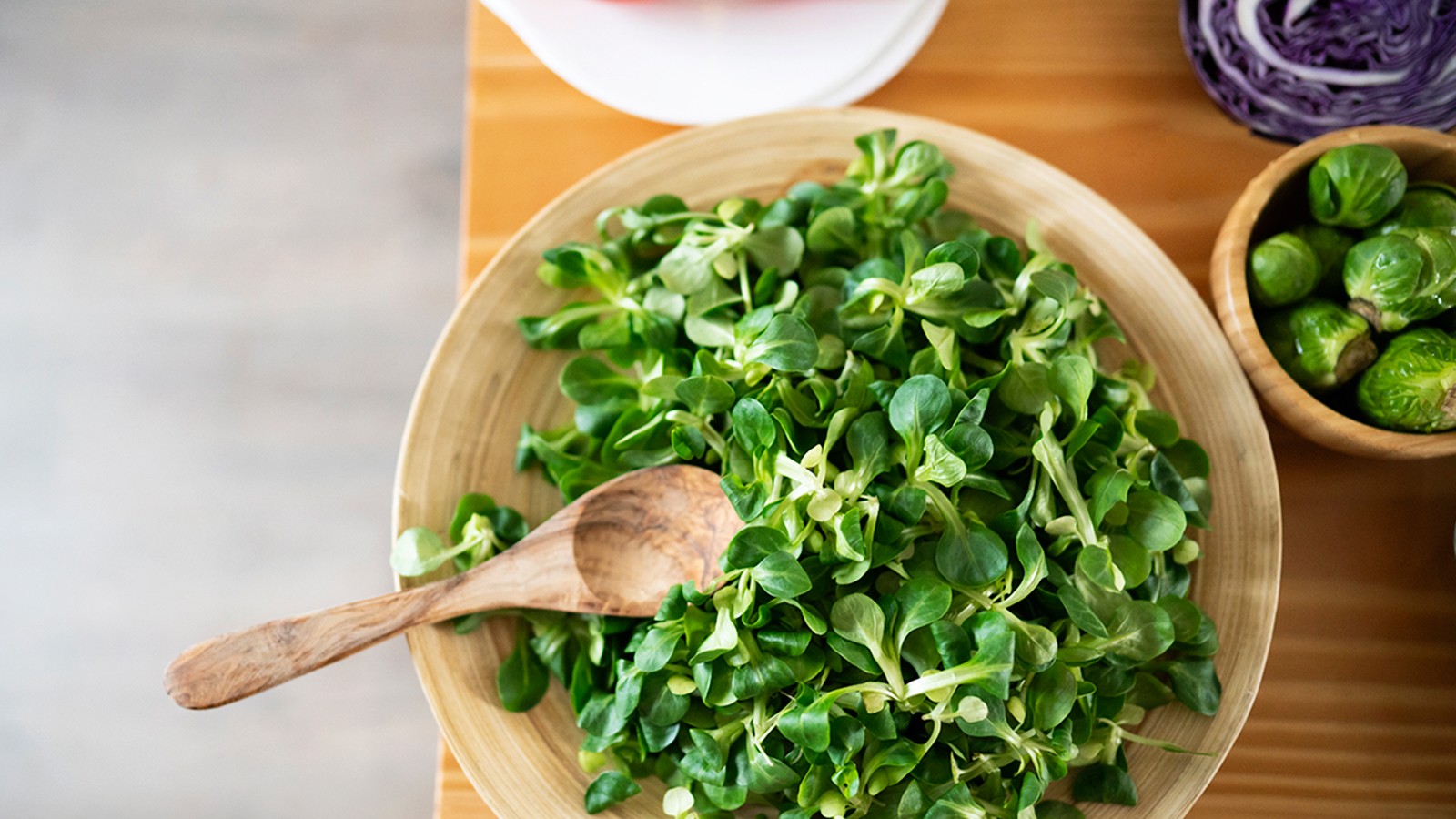
The importance of good nutrition goes far deeper than your skin or body composition. Brain health depends largely on what kinds of foods make up the majority of your diet.
A western diet pattern is primarily based on foods that are high in saturated fat, added salt and sugar, and low in fruits and vegetables.
It’s no coincidence that countries that practice a westernized diet also experience high rates of age-related cognitive decline in the form of diseases like Alzheimer’s dementia. (1)
Conversely, a Mediterranean diet pattern has proven to be neuroprotective. (2, 3)
Dietary patterns matter when it comes to the health of your brain.
Want to help protect your brain with your diet? Here are 10 evidence-based foods you should regularly incorporate into your diet to support your long-term brain health.
1. Leafy Greens
Leafy greens, including spinach, lettuce, arugula, collard greens, and Swiss chard, are high in folate, vitamins A and K, calcium, and fiber.
They also contain compounds like phylloquinone, lutein, nitrates, α-tocopherol, and kaempferol, which have a protective effect on brain health. (4)
In a 2018 observational study published in Neurology, 960 participants aged 58–99 years old completed a food frequency questionnaire and underwent at least two cognitive assessments over 4.7 years. (4)
The researchers identified a strong association between eating leafy green vegetables and experiencing slower cognitive decline.
In fact, those who consumed leafy greens the most, or at least 1.3 servings per day, experienced the brain function equivalent of being 11 years younger in age.
Put It Into Action:
Based on this research, try to eat at least 1–1.5 servings of leafy greens per day. This could look like 1 cup of loosely packed mixed greens in a salad, 1/2 cup of sauteed collard greens, or 1 cup of baby spinach blended into a smoothie.
2. Cruciferous Vegetables
The cousin to leafy greens, it’s not surprising that cruciferous veggies are also great for your brain.
Broccoli, kale, cabbage, cauliflower, and Brussels sprouts are loaded with vitamins C, E, and K, as well as folate and fiber.
Vitamin K is needed to promote the growth of sphingolipids, the important fats in your brain cells. Some studies have found that older adults with a high intake of vitamin K experience better memory. (5, 6)
Cruciferous veggies are also rich in sulfur-containing isothiocyanate compounds called sulforaphane, which help protect your brain. (7)
Sulforaphane has been observed to reduce brain inflammation in animal studies. It’s so potent that it’s been studied for potential use as a supplement for counteracting neurodegenerative diseases like Alzheimer’s dementia and Parkinson’s. (8, 9, 10)
Put It Into Action:
Aim to include cruciferous veggies in at least one meal every day. Some ideas include 1 cup of steamed broccoli, 1 cup of roasted Brussels sprouts, 1 cup of kale blended into a tropical green smoothie, or adding a 1/2 cup of chopped cabbage into a salad or inside of tacos.
3. Turmeric
Turmeric is a popular spice used in Indian and Middle Eastern cuisine, best known for its bright yellow-orange pigment.
It contains a bioactive compound called curcumin, which has antioxidant, anti-inflammatory, and antiproliferative properties that may benefit brain health. (11)
In fact, curcumin can cross the blood-brain barrier and directly benefit your brain. (12)
A 2012 controlled clinical trial among middle-aged adults found that supplementing 80 mg/day of curcumin helped lower concentrations of beta-amyloid protein in their brain, a marker of brain aging. (13)
Curcumin also boosts the production of brain-derived neurotrophic factor (BDNF), which helps promote brain cell growth. (14)
Some studies have also shown that turmeric improves the absorption of DHA in the brain by increasing its synthesis from its precursor, alpha-linolenic acid. (15)
This may be especially beneficial for preventing anxiety. Plus, curcumin boosts dopamine and serotonin and may help alleviate depression symptoms. (16)
When you consume turmeric, pair it with black pepper. Pepper contains a compound called piperine that can enhance curcumin absorption by up to 2000%. (17)
Put It Into Action:
Try adding a few pinches of turmeric (alongside a little black pepper) into breakfast scrambles and soups, use it to make turmeric milk lattes, or blend it into smoothies.
4. Berries
Blueberries, blackberries, raspberries, cranberries, and strawberries are rich in vitamins C and K1, fiber, and manganese.
Plus, eating a variety of berries is one of the best ways to add an abundance of bioactive compounds to your diet. (18)
Berries get their colorful pigmentation from antioxidants called anthocyanins, which help reduce inflammation and protect the brain from oxidative damage. (19, 20, 21)
Berry antioxidants can build up in your brain and promote communication between brain cells. (22)
Eating blueberries has been shown to improve memory among older adults. (23)
A 2012 study examined the cognitive effects of flavonoid compounds in berries among a cohort of 16,010 participants, at least 70 years and older. (24)
The authors found that people who ate more strawberries and blueberries experienced slower rates of cognitive decline.
In fact, they observed that eating a lot of berries appears to delay brain aging by up to 2.5 years.
Put It Into Action:
Berries are easy to enjoy and just as good for you whether eaten fresh or frozen. Add them to smoothies, use them to top oatmeal, cereal, or yogurt, or enjoy them raw as a snack. Warmed berries are delicious on pancakes and waffles. Try to eat berries once a day or at least a few days per week.
5. Coffee
Coffee is high in caffeine and antioxidants that can protect and support brain function. (25)
Research suggests that consuming 200 mg of caffeine in one sitting (2.5 cups of coffee) or 400 mg per day (5 cups of coffee) is not harmful and may offer brain benefits. (26)
Unless you’re highly sensitive to caffeine consumption, drinking coffee may be a good way to increase alertness and concentration, as well as improve mood. (27, 28, 29)
It may even boost the effectiveness of pain medications for headache control.
Furthermore, drinking coffee as a lifelong habit has been associated with slowing cognitive decline and lowering the risk of stroke and neurodegenerative diseases like Parkinson’s and Alzheimer’s.
In the Cardiovascular Risk Factors, Aging and Dementia (CAIDE) study, drinking 3–5 cups of coffee per day in mid-life reduced the risk for dementia by approximately 65%. (30)
Put It Into Action:
If you already enjoy drinking coffee, rest assured that between 2.5 and 5 cups per day appear to be helpful for brain function. Keep in mind that the most benefit comes from coffee enjoyed black or as close to it as possible and not a blended sugary coffee drink.
6. Green Tea
If you don’t like coffee, green tea is another naturally caffeinated beverage you could try for similar brain benefits, like improving memory and helping prevent age-related cognitive diseases. (31, 32)
Green tea contains catechin compounds, including epigallocatechin gallate (EGCG), which may be particularly beneficial for your brain. (33)
It also contains L-theanine, an amino acid shown to support mood and cognitive function and reduce distraction. (34)
L-theanine can cross the blood-brain barrier and help reduce anxiety by promoting the activity of the neurotransmitter GABA. Additionally, it increases alpha brain wave frequency, which is naturally calming. (35, 36)
Although benefits weren’t attributed to a single component in green tea, a 2017 review of 21 studies found that drinking green tea can help reduce anxiety, boost memory and attention, and improve cognitive function. (37)
As for how much green tea is needed for the most brain benefits from its bioactive compounds, it’s unclear. Most studies concerning diabetes, cancer, and heart disease range from 3–5 cups per day. (38, 39, 40)
Put It Into Action:
Green tea can count toward your daily hydration goals. You might enjoy a hot mug of green tea in the morning or prefer it over ice in the afternoon.
7. Fish
Fatty fish, like tuna, halibut, salmon, trout, sardines, and mackerel, are rich in omega-3 fatty acids EPA and DHA that are great for your brain across the lifespan. (41)
Studies show that around 60% of your brain is made up of fat, half of which are omega-3s. These are used to support learning and memory and to build nerve and brain cells. (42, 43)
Getting enough omega-3s can help slow the onset of age-related cognitive decline. (44)
Specifically, having enough DNA in your brain may help inhibit the negative impacts of stress on its function. (45)
Not getting enough has been linked to a higher risk for depression and impaired learning. (43, 46)
The importance of DHA on the brain is seen early in life. For instance, low maternal DHA levels have been linked to an increased risk for poor cognitive development in children. (47)
Omega-3s also have an anti-inflammatory effect on the brain. (48)
A 2014 study found that people who consumed baked or broiled fish as a regular part of their diet had more gray matter in their brains, which houses nerves for emotion, memory, and decision-making. (49)
If you don’t eat fish or seafood, you can get similar benefits from algae-derived omega-3 supplements. After all, algae are where fish get their omega-3 fatty acids from in the first place. (50)
Put It Into Action:
Daily recommendations for total omega-3s are approximately 1–1.6 grams for adults. For a frame of reference, a 1-ounce serving of smoked salmon offers around 0.85 grams of unsaturated fatty acids. If using a supplement, check the label to see how much it can contribute to your daily intake. (51, 52)
8. Nuts
Eating nuts may help slow cognitive decline and even prevent neurodegenerative diseases and age-related brain dysfunction. (20)
Long-term consumption of nuts over several years was found to improve memory in a 2014 study among older women. (53)
Walnuts are among the best sources of omega-3 fatty acids and vitamin E, which have antioxidant effects on your brain. (54, 55)
Eat walnuts along with various other nuts, like cashews, almonds, Brazil nuts, peanuts, macadamia nuts, and pecans, for brain-healthy compounds and an array of micronutrients.
Put It Into Action:
Aim for at least one serving of nuts every day. Nuts can be enjoyed in their raw form, made into a trail mix, used to top salads and breakfast bowls or even blended to make your own nut butter at home. Cashews have a neutral flavor that works well as a base for plant-based cheeses and non-dairy sauces.
9. Seeds
Eating a variety of seeds, like sunflower, pumpkin, hemp, chia, sesame, and flax, will provide omega-3 fats and micronutrients that are good for your brain. (56)
Zinc and copper are essential for communication between nerves. Not getting enough zinc has been associated with a higher risk of depression and neurodegenerative diseases like Alzheimer’s, dementia, and Parkinson’s. (57, 58, 59)
Many seeds are also a good source of magnesium, which is important for several brain functions and is helpful for managing depression. (60, 61)
Put It Into Action: Shoot for one serving of seeds per day, which is generally around 1-ounce or 1/4 cup. Seeds are a perfect topper for salads, warm pasta dishes, pancakes, waffles, and yogurt. They also blend well into smoothies. Chia and flax seeds should be ground before eating to make their omega-3 fatty acids more bioavailable for your body.
10. Legumes
Legumes, including beans, peas, and lentils, are great plant-based substitutes for red and processed meat, intake of which may be associated with a higher risk for cognitive impairment later in life. (62, 63)
Plus, a 2012 study among nearly 6,000 elderly Chinese adults found that a lower intake of vegetables and legumes was associated with a higher risk for cognitive decline. (64)
Beans contain potent antioxidants that may have protective effects against numerous chronic diseases. (65)
They’re also good sources of minerals known to protect the brain, such as calcium, zinc, and selenium. For these reasons, you may want to consider increasing your intake of legumes. (56)
Put It Into Action:
Try to include at least 2–3 servings of legumes most days, which is around 1/2 cup cooked. Add beans and lentils to soups, chili, and other crockpot meals. Use them in homemade veggie burger patties or burritos. Peas blend well into pesto or can be mixed into pasta dishes and salads.
The Bottom Line
Research shows that much of your long-term brain health depends on the nutritional quality of your diet.
Some of the best foods for brain health that are also loaded with nutrients and antioxidants are leafy greens, berries, fatty fish, and other sources of omega-3 fats, nuts, and turmeric.
While these foods can definitely help improve brain function, if you are experiencing symptoms related to brain health, always speak to your doctor as well.
But a healthy diet doesn’t hurt either. So taking care of your brain by adding these foods to your diet can help protect your brain as it ages.
At WellnessVerge, we only use reputable sources, including peer-reviewed medical journals and well-respected academic institutions.
- Prudent diet may attenuate the adverse effects of Western diet on cognitive decline:
https://pubmed.ncbi.nlm.nih.gov/26342761/ - Is the Mediterranean diet a feasible approach to preserving cognitive function and reducing risk of dementia for older adults in Western countries? New insights and future directions:
https://pubmed.ncbi.nlm.nih.gov/26542489/ - MIND diet associated with reduced incidence of Alzheimer's disease:
https://pubmed.ncbi.nlm.nih.gov/25681666/ - Nutrients and bioactives in green leafy vegetables and cognitive decline: Prospective study:
https://pubmed.ncbi.nlm.nih.gov/29263222/ - Vitamin K and the Nervous System: An Overview of its Actions:
https://www.ncbi.nlm.nih.gov/pmc/articles/PMC3648721/ - Increased dietary vitamin K intake is associated with less severe subjective memory complaint among older adults:
https://pubmed.ncbi.nlm.nih.gov/26923488/ - Sulforaphane protects brains against hypoxic-ischemic injury through induction of Nrf2-dependent phase 2 enzyme:
https://pubmed.ncbi.nlm.nih.gov/20417626/ - Sulforaphane improves outcomes and slows cerebral ischemic/reperfusion injury via inhibition of NLRP3 inflammasome activation in rats:
https://pubmed.ncbi.nlm.nih.gov/28189971/ - Efficacy of Sulforaphane in Neurodegenerative Diseases:
https://pubmed.ncbi.nlm.nih.gov/33207780/ - Crucifers and related vegetables and supplements for neurologic disorders: what is the evidence?:
https://pubmed.ncbi.nlm.nih.gov/30199394/ - Therapeutic Potential of Curcumin for the Treatment of Brain Tumors:
https://www.hindawi.com/journals/omcl/2016/9324085/ - The effect of curcumin (turmeric) on Alzheimer's disease: An overview:
https://www.ncbi.nlm.nih.gov/pmc/articles/PMC2781139/ - Diverse effects of a low dose supplement of lipidated curcumin in healthy middle aged people:
https://pubmed.ncbi.nlm.nih.gov/23013352/ - Curcumin Enhances Neurogenesis and Cognition in Aged Rats: Implications for Transcriptional Interactions Related to Growth and Synaptic Plasticity:
https://journals.plos.org/plosone/article?id=10.1371/journal.pone.0031211 - Curcumin boosts DHA in the brain: Implications for the prevention of anxiety disorders:
https://pubmed.ncbi.nlm.nih.gov/25550171/ - Antidepressant activity of curcumin: involvement of serotonin and dopamine system:
https://link.springer.com/article/10.1007/s00213-008-1300-y - Curcumin: A Review of Its’ Effects on Human Health:
https://www.ncbi.nlm.nih.gov/pmc/articles/PMC5664031/ - Bioactive Compounds and Antioxidant Activity in Different Types of Berries:
https://pubmed.ncbi.nlm.nih.gov/26501271/ - Neuroprotective effects of berry fruits on neurodegenerative diseases:
https://www.ncbi.nlm.nih.gov/pmc/articles/PMC4192974/ - Cognition: the new frontier for nuts and berries:
https://pubmed.ncbi.nlm.nih.gov/24871475/ - Berry Phenolic Antioxidants - Implications for Human Health?:
https://pubmed.ncbi.nlm.nih.gov/29662448/ - Recent advances in berry supplementation and age-related cognitive decline:
https://pubmed.ncbi.nlm.nih.gov/19057194/ - Blueberry supplementation improves memory in older adults:
https://pubmed.ncbi.nlm.nih.gov/20047325/ - Dietary intakes of berries and flavonoids in relation to cognitive decline:
https://pubmed.ncbi.nlm.nih.gov/22535616/ - Neuroprotective and Anti-inflammatory Properties of a Coffee Component in the MPTP Model of Parkinson’s Disease:
https://www.ncbi.nlm.nih.gov/pmc/articles/PMC3557367/ - Effects of coffee/caffeine on brain health and disease: What should I tell my patients?:
https://pubmed.ncbi.nlm.nih.gov/26677204/ - Caffeine and adenosine:
https://pubmed.ncbi.nlm.nih.gov/20164566/ - Effects of caffeine on mood and performance: a study of realistic consumption:
https://pubmed.ncbi.nlm.nih.gov/12404081/ - The impact of caffeine on mood, cognitive function, performance and hydration: a review of benefits and risks:
https://onlinelibrary.wiley.com/doi/full/10.1111/j.1467-3010.2007.00665.x#b19 - Caffeine as a protective factor in dementia and Alzheimer's disease:
https://pubmed.ncbi.nlm.nih.gov/20182054/ - Green tea extract enhances parieto-frontal connectivity during working memory processing:
https://pubmed.ncbi.nlm.nih.gov/24643507/ - Neurological mechanisms of green tea polyphenols in Alzheimer's and Parkinson's diseases:
https://pubmed.ncbi.nlm.nih.gov/15350981/ - Function of Green Tea Catechins in the Brain: Epigallocatechin Gallate and its Metabolites:
https://pubmed.ncbi.nlm.nih.gov/31349535/ - Effect of Green Tea Phytochemicals on Mood and Cognition:
https://pubmed.ncbi.nlm.nih.gov/28056735/ - The neuropharmacology of L-theanine(N-ethyl-L-glutamine): a possible neuroprotective and cognitive enhancing agent:
https://pubmed.ncbi.nlm.nih.gov/17182482/ - L-theanine, a natural constituent in tea, and its effect on mental state:
https://pubmed.ncbi.nlm.nih.gov/18296328/ - Green tea effects on cognition, mood and human brain function: A systematic review:
https://pubmed.ncbi.nlm.nih.gov/28899506/ - The relationship between green tea and total caffeine intake and risk for self-reported type 2 diabetes among Japanese adults:
https://pubmed.ncbi.nlm.nih.gov/16618952/ - A multi-institute case-control study on the risk factors of developing pancreatic cancer:
https://pubmed.ncbi.nlm.nih.gov/1434027/ - Green tea consumption and risk of cardiovascular and ischemic related diseases: A meta-analysis:
https://pubmed.ncbi.nlm.nih.gov/26318390/ - Brain Health across the Lifespan: A Systematic Review on the Role of Omega-3 Fatty Acid Supplements:
https://pubmed.ncbi.nlm.nih.gov/30111738/ - Omega-3 Fatty Acids and their Role in Central Nervous System - A Review:
https://pubmed.ncbi.nlm.nih.gov/26795198/ - Novel insights into the effect of vitamin B₁₂ and omega-3 fatty acids on brain function:
https://pubmed.ncbi.nlm.nih.gov/26809263/ - Omega-3 fatty acids and dementia:
https://pubmed.ncbi.nlm.nih.gov/19523795/ - Omega-3 fatty acids and brain resistance to ageing and stress: body of evidence and possible mechanisms:
https://pubmed.ncbi.nlm.nih.gov/23395782/ - A meta-analytic review of double-blind, placebo-controlled trials of antidepressant efficacy of omega-3 fatty acids:
https://pubmed.ncbi.nlm.nih.gov/17685742/ - Dietary omega 3 fatty acids and the developing brain:
https://pubmed.ncbi.nlm.nih.gov/18789910/ - Anti-Inflammatory Effects of Omega-3 Fatty Acids in the Brain: Physiological Mechanisms and Relevance to Pharmacology:
https://pubmed.ncbi.nlm.nih.gov/29217656/ - Regular fish consumption and age-related brain gray matter loss:
https://pubmed.ncbi.nlm.nih.gov/25084680/ - Cognitive and cardiovascular benefits of docosahexaenoic acid in aging and cognitive decline:
https://pubmed.ncbi.nlm.nih.gov/20088810/ - Omega-3 Fatty Acids Fact Sheet for Health Professionals:
https://ods.od.nih.gov/factsheets/Omega3FattyAcids-HealthProfessional/ - Salmon, Smoked. FoodData Central Search Results:
https://fdc.nal.usda.gov/fdc-app.html#/food-details/1098980/nutrients - LONG-TERM INTAKE OF NUTS IN RELATION TO COGNITIVE FUNCTION IN OLDER WOMEN:
https://www.ncbi.nlm.nih.gov/pmc/articles/PMC4105147/ - Vitamin E and cognitive decline in older persons:
https://pubmed.ncbi.nlm.nih.gov/12117360/ - Association of antioxidants with memory in a multiethnic elderly sample using the Third National Health and Nutrition Examination Survey:
https://pubmed.ncbi.nlm.nih.gov/10400551/ - Brain foods: the effects of nutrients on brain function:
https://www.ncbi.nlm.nih.gov/pmc/articles/PMC2805706/ - Zinc: an underappreciated modulatory factor of brain function:
https://pubmed.ncbi.nlm.nih.gov/25130547/ - Copper: from neurotransmission to neuroproteostasis:
https://pubmed.ncbi.nlm.nih.gov/25071552/ - Zinc: indications in brain disorders:
https://pubmed.ncbi.nlm.nih.gov/25659970/ - Magnesium in man: implications for health and disease:
https://pubmed.ncbi.nlm.nih.gov/25540137/ - Magnesium in depression:
https://pubmed.ncbi.nlm.nih.gov/23950577/ - Meat consumption and risk of incident dementia: cohort study of 493,888 UK Biobank participants:
https://pubmed.ncbi.nlm.nih.gov/33748832/ - Meat consumption in midlife and risk of cognitive impairment in old age: the Singapore Chinese Health Study:
https://pubmed.ncbi.nlm.nih.gov/31227861/ - Lower intake of vegetables and legumes associated with cognitive decline among illiterate elderly Chinese: a 3-year cohort study:
https://pubmed.ncbi.nlm.nih.gov/22659995/ - Nutritional and health benefits of dried beans:
https://pubmed.ncbi.nlm.nih.gov/24871476/


